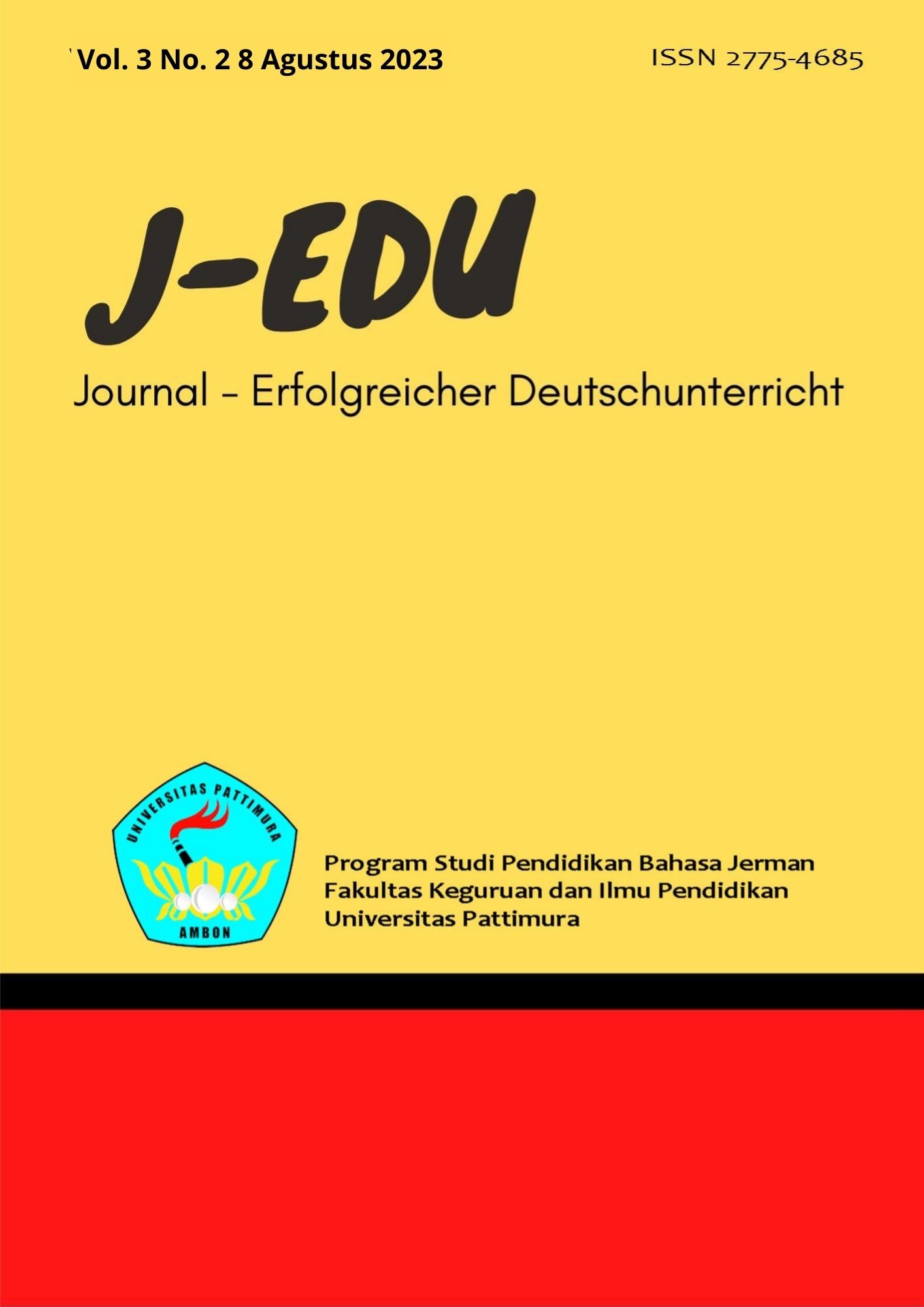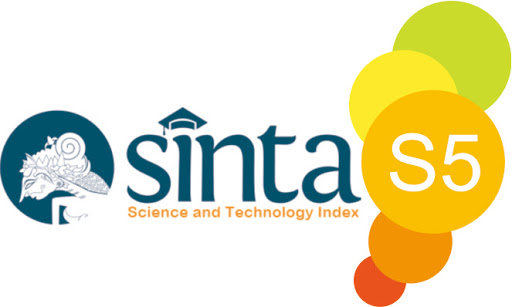The Effect of the Hybrid Learning Model on Produktive Fertigkeit Subject Learning Outcomes, Students of the German Language Study Program FKIP Unpatti Ambon
Abstract
This research was stimulated by the low learning outcomes of Produktive Fertigkeit subject due to students' lacked of understanding of Produktive Fertigkeit subject, and learning resources that have not utilized technology in teaching and learning activities. The purpose of this study was to determine the effect of the Hybrid Learning Model on the learning outcomes of Produktive Fertigkeit Subject, Students of the German Language Education Study Program. This research was an experimental research with one group pre-test and post-test design. The population was students of the FKIP German Language Education Study Program with a sample of 18 students. The data obtained in the form of test scores, that is the pre-test before applying the Hybrid Learning Model and the post-test after the application of the Hybrid Learning Model. The instrument used was a written test. Data was processed using paired t test. The results showed that t-count = 12.505 at a significance level α = 0.05 which was higher than t-tab = 2.110. Thus, the results of the calculations showed that there was an influence of the Hybrid Learning Model on the learning outcomes of Produktive Fertigkeit subject. Therefore, it is recommended to apply the Hybrid Learning Model in order to improve Student Learning Outcomes.
Downloads
Copyright (c) 2023 J-EDu: Journal - Erfolgreicher Deutschunterricht

This work is licensed under a Creative Commons Attribution-ShareAlike 4.0 International License.





_.jpg)
